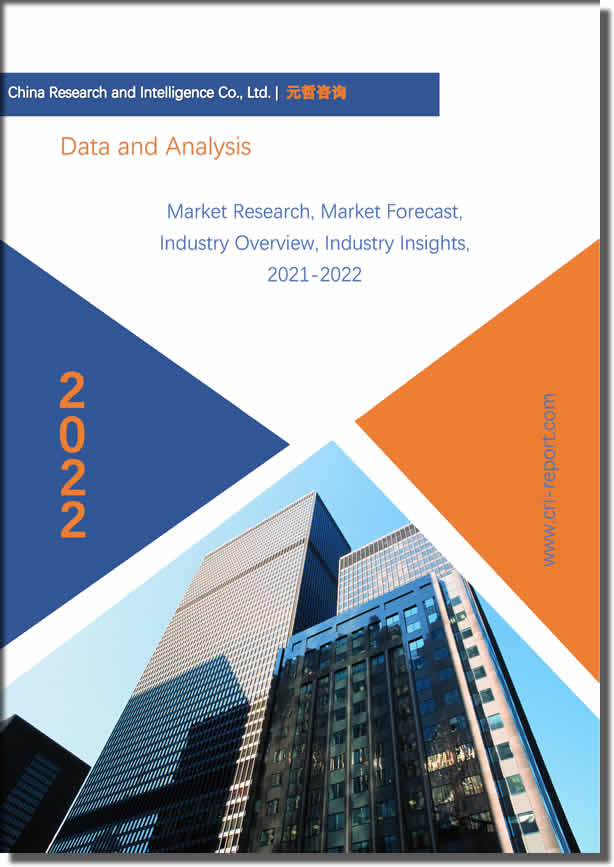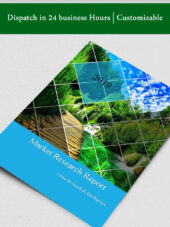Description
Global RFID in Agriculture Market
Global RFID in Agriculture Market to surpass USD 27.9 billion by 2031 from USD 10.1 billion in 2021 at a CAGR of 10.65% in the coming years, i.e., 2021-30.
Product Overview
RFID can be defined as Radio Frequency Identification, is a technology, that uses radio waves to provide and gather the data and information stored on a tag attached to an object, animal, or human. It is same as bar codes and yet, it does not need to be within the range of an RFID reader. RFID is applied across construction, engineering, chemical industries, manufacturing, retail, logistics, and the public sector among others. A combination of RFID tags and sensor service is a perfect solution for several locations in a manufacturing capacity, such as conveyors, cameras, boilers, tanks, pipes, etc., to achieve and maintain the quality and production of a manufacturing process.
Market Highlights
Global RFID in Agriculture Market is expected to project a notable CAGR of 10.65% in 2031
Key aspects driving the expansion of this market include increasing market competitiveness resulting in the availability of cost-effective RFID solutions, high rate of returns on investment, increasing regulations and government measures for several industries, and growing installation of RFID systems in manufacturing units to improve efficiency.
Global RFID in Agriculture: Segments
Passive Tags segment to grow with the highest CAGR during 2021-31
Global RFID in Agriculture is divided by Tags Type into Passive Tags and Active Tags. Passive Tags segment to be a larger contributor to Global RFID in Agriculture growth during the forecast period. Passive tags do not need an external power resource. These are low-cost and smaller, and easier to produce than active tags. Passive RFID tags have several applications and are commonly used to track devices in pharmaceuticals, retail, supply chain, enterprise, and other industries. With the increasing penetration of passive tags as RAIN RFID frequency, the market for these tags is anticipated to grow at the highest CAGR during the forecast years.
Logistics & Supply Chain segment to grow with the highest CAGR during 2021-31
Global RFID in Agriculture is divided by Application into Agriculture, Commercial, Transportation, Healthcare, Logistics & Supply Chain, Aerospace, Defense, Retail, Security and Access Control, Sports, Animal Tracking and Ticketing. Logistics & Supply Chain segment has the largest market share. The dominance of this segment is because of the high acceptance of tracking systems by logistics organizations to track and monitor their cargo in transit through air, road, or marine. RFID services help industries enhance their supply chain by better managing warehouse inventory, tracking shipments, and streamlining the best route for the supply chain. Supply chain corporations are facing major concerns in confirming that the right product is delivered at the right location at the right time. These activities are anticipated to boost the growth of the RFID tag market for logistics and supply chain applications.
Market Dynamics
Drivers
Increasing installation of RFID systems
Manufacturing facilities need to monitor equipment condition and performance, defects in processes, and system failures, and confirm predictive maintenance of equipment and systems through the incorporation of specialized tools and acceptance of quality management performs. The use of RFID technology for plant asset administration helps manufacturers attain this goal. A combination of RFID tags and sensor service is an ideal solution for many locations in a manufacturing facility, such as conveyors, cameras, boilers, tanks, pipes, etc., to accomplish and maintain the quality and production of a manufacturing process.
Rising need for contact-tracing solutions
Many industries and offices across the world have resumed their work after the COVID-19-induced lockdowns were lifted. Nevertheless, governments have mandated such industries to continue social distancing and low employee capacity. If the rules are not followed, a single case of COVID-19 can potentially cause the closure of an entire facility and need decontamination before restarting the actions. To avoid such circumstances, large businesses are undertaking several precautionary measures, including contact-tracing services. To invest on the rising need for contact-tracing solutions, many RFID solutions providers have been introducing new products or improving existing products to suit the needs of their customers.
Restraint
High purchase and installation costs
The installation cost of an RFID system can vary from USD 2 million to 5 million for a standard active real-time monitoring system. This cost can range according to end-use industry and installation area. High installation cost is one of the major restraining features for the implementation of RFID technology. Adoption of RFID systems in any business needs high investments which includes the purchase cost of RFID tags, readers, and software, and the costs related to replacement services and electricity.
Global RFID in Agriculture: Key Players
Avery Dennison
Company Overview, Business Strategy, Key Product Offerings, Financial Performance, Key Performance Indicators, Risk Analysis, Recent Development, Regional Presence, SWOT Analysis
Confidex
CoreRFID
GAO RFID
HID Global
Impinj
Invengo Technology
JADAK
Mojix
Nedap
Omni-ID
ORBCOMM
RISE Acreo
SMARTRAC
Other Prominent Players
Impact of COVID-19 on Global RFID in Agriculture
COVID-19 impacted the operations of the various RFID companies and also impact the businesses of their partners and distributers. The reduction in demand for expensive retail products worldwide due to lockdown measures, coupled with supply chain disruptions, is anticipated to have slowed down the growth of the RFID market. The falling global demand for vehicles is also likely to have a mid-term effect on the automotive RFID market. Although governments in developing countries have mandated the RFID tagging on vehicles for tolling, the curbs in travel have currently restricted the deployment of RFID tags. Manufacturing services across many sectors, such as automotive and consumer electronics, re-opened post-third quarter of 2020 as lockdown measures were lifted in several countries. Still, factories in the many regions are yet to operate at pre-COVID-19 levels owing to social distancing norms.
Global RFID in Agriculture: Regions
Global RFID in Agriculture is segmented based on regional analysis into five major regions: North America, Latin America, Europe, Asia Pacific, and the Middle East and Africa. Europe is one of the largest markets for Global RFID in Agriculture across the globe. The high implementation of RFID systems in the US is a major factor that has led to the prominent position of the North Americas in the RFID market. Retail, manufacturing, transportation, logistics and supply chain and IT asset tracking are the main applications for the RFID tag market in the US as well as throughout the Americas. The use of RFID is huge in supply chain monitoring for tracking assets in real-time. Several hospitals in the US are using RFID tags for applications such as equipment tracking, patient monitoring, and other tracking tasks. These expansions are expected to boost the growth of the RFID tag market in the region.
Global RFID in Agriculture is further segmented by region into:
North America Market Size, Share, Trends, Opportunities, Y-o-Y Growth, CAGR – United States and Canada
Latin America Market Size, Share, Trends, Opportunities, Y-o-Y Growth, CAGR – Mexico, Argentina, Brazil, and Rest of Latin America
Europe Market Size, Share, Trends, Opportunities, Y-o-Y Growth, CAGR – United Kingdom, France, Germany, Italy, Spain, Belgium, Hungary, Luxembourg, Netherlands, Poland, NORDIC, Russia, Turkey and Rest of Europe
Asia Pacific Market Size, Share, Trends, Opportunities, Y-o-Y Growth, CAGR – India, China, South Korea, Japan, Malaysia, Indonesia, New Zealand, Australia, and Rest of APAC
Middle East and Africa Market Size, Share, Trends, Opportunities, Y-o-Y Growth, CAGR – North Africa, Israel, GCC, South Africa, and Rest of MENA
Global RFID in Agriculture report also contains analysis on:
Global RFID in Agriculture Segments
By Product Type
Passive Tags
Active Tags
By Application
Agriculture
Commercial
Transportation
Healthcare
Logistics & Supply Chain
Aerospace
Defense
Retail
Security and Access Control
Sports
Animal Tracking
Ticketing
Global RFID in Agriculture Dynamics
Global RFID in Agriculture Size
Supply & Demand
Current Trends/Issues/Challenges
Competition & Companies Involved in the Market
Value Chain of the Market
Market Drivers and Restraints
Global RFID in Agriculture Report Scope and Segmentation
Report Attribute Details
Market size value in 2021 USD 10.1 billion
Revenue forecast in 2031 USD 27.9 billion
Growth Rate CAGR of 10.65% from 2021 to 2031
Base year for estimation 2020
Quantitative units Revenue in USD million and CAGR from 2021 to 2031
Report coverage Revenue forecast, company ranking, competitive landscape, growth factors, and trends
Segments covered Product Type, Application, and Region
Regional scope North America; Europe; Asia Pacific; Latin America; Middle East & Africa (MEA)
Key companies profiled Avery Dennison, Confidex, CoreRFID, GAO RFID, HID Global, Impinj, Invengo Technology, JADAK, Mojix, Nedap, Omni-ID, ORBCOMM, RISE Acreo, SMARTRAC, and Other Prominent Players




Reviews
There are no reviews yet.